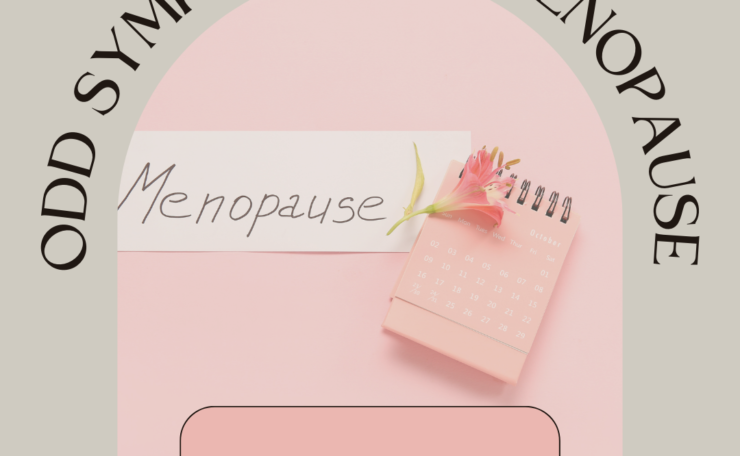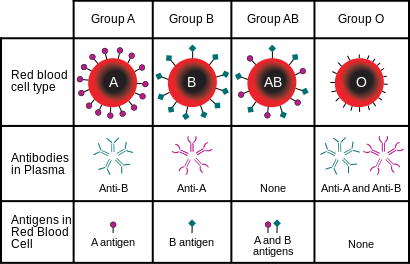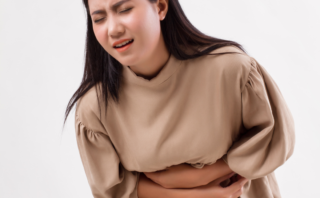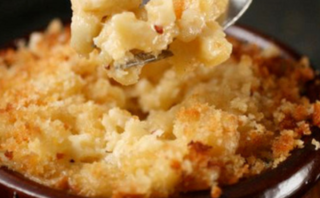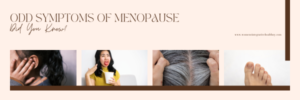
Week 4 – Odd Symptoms of Menopause
Up This Week – Metallic Taste and Thinning Hair in Menopause
Welcome to Week 4 of the Odd Symptoms of Menopause Series
Metallic Taste
This might just be one of the most odd symptoms of Menopause – experiencing a metallic taste in the mouth. This can range from subtle metallic sensation to a more severe and persistent one making eating challenging or actually diminishing your interest in foods you have enjoyed. Some describe it as feeling like they have been sucking on a penny!!!
Can Menopause Cause a Strange Taste in the Mouth?
Estrogen is a moisturizer for your entire body including the mucous membranes and saliva production in your mouth. When your mouth is excessively dry, it can temporarily affect your taste buds causing a metallic taste. Dry mouth also increases the risk of oral health issues such as gum disease and tooth decay.
How Can You Get Rid of the Metallic Taste in Your Mouth During Menopause?
Staying hydrated is one of the best ways to alleviate the metallic taste in your mouth during menopause. Drink plenty of water to keep your saliva production up and prevent dry mouth.
Chewing gum, adding spices or using natural mouthwashes can help stimulate saliva production and reduce the metallic taste. Maintaining good oral hygiene including regular brushing and flossing also helps to prevent oral health issues that may make the metallic taste worse.
Tips for Metallic Taste in Menopause:
- Stay hydrated
- Chew gum
- Add spices or lemon to dishes to stimulate saliva production
- Maintain regular dental appointments
- Consider natural mouthwashes and toothpastes
Thinning Hair in Menopause
Hair loss may seem inevitable with aging. Menopause does play a role in thinning hair. It may be subtle or more noticeable. It can be a significant source of anxiety for women experiencing it.
Why Does Hair Thin in Menopause?
Decreasing estrogen and progesterone levels as we age contribute to hair thinning. Just as our skin changes over time, our hair follicles also change and shrink in size. During the menopause the balance of male hormones also shifts. This can lead to loss or unwanted hair growth.
How to Stop Hair Loss in Menopause?
Anemia, thyroid disorders and other medical issues can also lead to hair loss so getting to the root cause of your hair loss is important.
A nutrient-dense diet is essential because vitamin deficiencies and low levels of them can contribute to hair loss. Be gentle with your hair when wet. This may mean more air drying instead of using heat tools, limiting chemical treatments and using a gentle brush.
Tips for Hair Loss in Menopause:
- Be gentle with brushing
- Sleep on a silk or satin pillowcase
- Eat a diet that supports hair growth
- Examine the root cause
For help with getting to the root cause of these and other menopause symptoms and concern, set up a complimentary discovery call today! We can get to the root causes once you get to the root of the issues.

